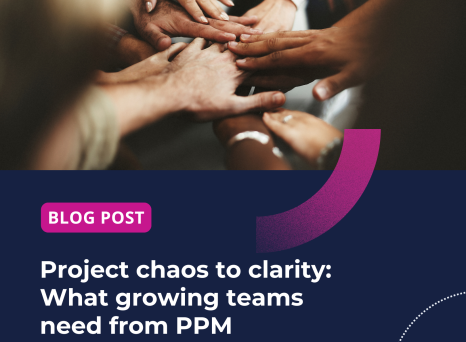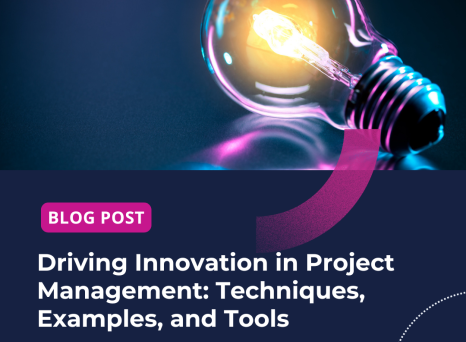If you enjoy reading non-fiction books, you may have come across one of 2021's current bestsellers: Think Again by Adam Grant. In it, the author makes the case that one of the most underestimated skills leaders can develop is the capacity to rethink, in other words to change their minds in the face of new evidence. He also argues that in our increasingly fast changing world, this ability is one of the most critical.
As I was reading the book, it occurred to me that the inability to change one's mind – especially when based on several years or often decades of experience – is also a key source of weakness in project and portfolio management. And the skill of re-thinking is just as critical to project and program leaders. Let me explain.
In project management, maybe more than in other areas, the ability to learn from the past and devise systematic ways of estimating and evaluating situations is essential. That is one of the reasons why organizations such as the PMI, and the certifications it teaches are so important. However, with the acceleration of change and disruption over the past decade, the gap between stability of our methods and techniques and speed of change in our business environments has increased dramatically.
"Most of us take pride in our knowledge and expertise, and in staying true to our beliefs and opinions. That makes sense in a stable world, where we get rewarded for having conviction in our ideas. The problem is that we live in a rapidly changing world, where we need to spend as much time rethinking as we do thinking.
—Adam Grant, Think Again
One such rapid change has been the remarkable development of Agile, from a fringe methodology for developing software, to one of the leading project management methodologies worldwide. Already in 2018, the PMI's Pulse of the Profession had identified that 71% of respondents had seen an increased use of Agile techniques to complete their projects. And one of the most common things that we hear when Agile transformations don't go quite to plan is that "People haven't changed their mindsets": they are still using old (waterfall) techniques and frames of reference, and applying them to completely new (Agile) ways of doing things.
There can be a tendency to think that those people are "not quite "in"", "not quite as smart as [us] since they cannot recognize the advantages of Agile". But as Adam Grant points out "recent experiments suggest that the smarter you are, the more you might struggle to update your beliefs."
So what can we do?
First, we can resist the temptation to consider an assessment up-and-done-with, and take the time to identify even just one reason why a conclusion might be wrong. Research shows that doing so can be enough to curb overconfidence. This is the technique used by Jean-Pierre Beugoms, a champion at forecasting tournaments (yes, such things exist...) "When he makes a forecast, he also makes a list of the conditions in which it should hold true—as well as the conditions under which he would change his mind. He explains that this keeps him honest, preventing him from getting attached to a bad prediction."
Second, we can learn to cultivate humility. As blogger Tim Urban explains, “While humility is a permeable filter that absorbs life experience and converts it into knowledge and wisdom, arrogance is a rubber shield that life experience simply bounces off of.”
Learning to remain humble does not mean being indecisive or perpetually unsure. On the contrary, "You can be confident in your ability to achieve a goal in the future while maintaining the humility to question whether you have the right tools in the present. That's the sweet spot of confidence. [...] In rigorous studies of leadership effectiveness across the United States and China, the most productive and innovative teams aren't run by leaders who are confident or humble. The most effective leaders score high in both confidence and humility."
Not sure where to start? At Planisware, we love ideas that challenge the status quo and force us to see the world differently. So we created the PlaniswareHub Monthly Brief, a monthly email that links to the 10 most interesting or thought provoking articles we've found around the web. Sign up here: https://planisware.com/streamline.

